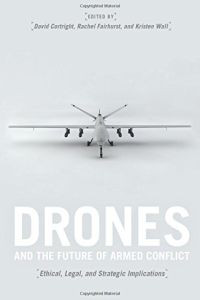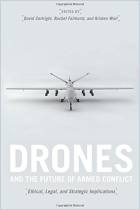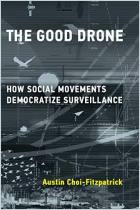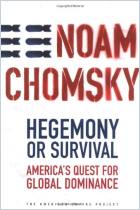
Drones and the Future of Armed Conflict
Ethical, Legal, and Strategic Implications
Recommendation
In this anthology of essays, drone warfare experts examine the most challenging issues in their field, including, notably, the targeted killings of terrorists and suspected terrorists. This range of opinions points out that drone strikes are useful tactically but may be unwise strategically in that they kill individual terrorists but can serve as powerful recruiting tools for terrorist organizations. Sophisticated targeting means operators can confine drone attacks to individual targets, mitigating the need for frontline troops and limiting collateral damage. Diverse authors – as edited by David Cortright, Rachel Fairhurst and Kristen Wall – offer opinions as well as an analysis that will interest national strategists, military theorists, international lawyers, government leaders, ethicists, weapons experts, counterterrorism professionals, military scholars, human rights champions, and anyone intrigued by drones and their future.
Summary
About the Authors
David Cortright directs policy studies at the Kroc Institute for International Peace Studies at the University of Notre Dame, where Rachel Fairhurst and Kristen Wall were research assistants. Anthology contributors are Martin L. Cook, David Cortright, Audrey Kurth, Mary Dudziak, Rachel Fairhurst, Karen J. Greenberg, Christof Heyns, Palais Wilson, Patrick B. Johnston, Pardiss Kebriaei, Kristen Wall, Jennifer M. Welsh, Chris Woods and Rafia Zakaria.




















Comment on this summary or Начать обсуждение